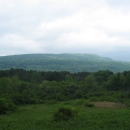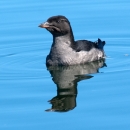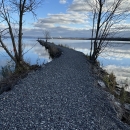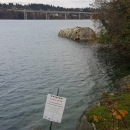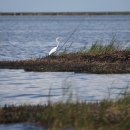States
District of ColumbiaFish, wildlife, and other natural resources can be injured when oil or hazardous substances spill or are released into the environment. During the oil and hazardous substance release response, the U.S. Fish and Wildlife Service (Service) environmental response and restoration specialists collect data to help assess the effects of the spill or release and the response actions on wildlife and other natural resources. The information can be used to pursue a national resource damage assessment claim against the potentially responsible parties through the authorities listed in theComprehensive Environmental Response, Compensation, and Liability Act; Oil Pollution Act; or Clean Water Act.
The Natural Resource Damage Assessment and Response (NRDAR) process starts at the time the Service is notified of a release. Response actions by the Service are conducted with natural resources in mind, making observations and noting the extent of possible injuries and any actions to clean-up the site are completed such that additional injuries are not encountered. Learn more about our work to minimize impacts to natural resources from oil spills and hazardous substance releases.
The Service, along with other federal, state, and tribal partners, acts as trustees for natural resources in these natural resource damage assessment claims. The Service has responsibility for managing national wildlife refuges, endangered and threatened species, migratory birds, and other related natural resources. Through data collected scientific assessment techniques and extrapolated through economic analyses, trustees seek to identify the natural resources injured from oil or hazardous substances, determine the extent of the injuries, recover damages from those responsible, and plan and carry out restoration activities. Samples to assess injuries are analyzed through certified labs managed through the Analytical Control Facility.
The primary benefit of the NRDAR Program is to achieve restoration of injured resources for the benefit of the American people, and at no cost. This program seeks compensation from responsible parties to restore natural resources for all and allows all Americans to enjoy clean and safe public rivers and lands.
Visit the Interior Department's NRDAR website to learn more about the NRDAR process and track cases nationwide.

